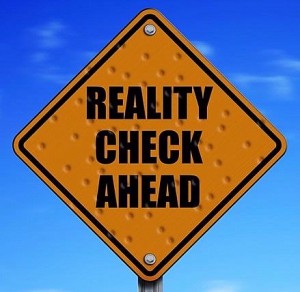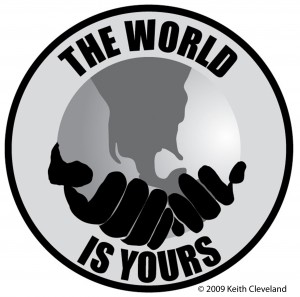I, like you, am passionate about this industry we’re in, the industry of creating products and services that are meaningful to others. I am so passionate that, like you, I read, watch, listen, write, speak and practice this profession (along with eat, sleep and breath it as well!). But as I was reading another amazing post of lecture notes from one of the best in the business, I started to think. I thought long and hard about how we talk about our work, write about work, aspire to practice our work. And who else is with me when I say… we have a big problem with Should, and an even bigger problem with Is?
Currently, the majority of how we write and speak about our work is in ideals… myself included. I find myself saying “Ideally you would have already done personas” or “Ideally we’d be involved in every step of this process” or “Ideally we’d be taking all channels into consideration, but due to the scope of this project…”,
The thing is rarely, very rarely, (if at all!) do these ideals line up in real life. For instance, I have tons of great resources telling me how I should, in an ideal world, conduct a discovery and strategy project. These resources have provided me a great outline for doing my work (to be fair, many tell us that they are only outlines), but rarely ever do they provide me a real world scenario that is seeped in reality OR they do provide me a real world scenario of their’s, unfortunately, however, my real world is not as awesome. Don’t get me wrong here, we need the ideals, but along with them I’d like to start seeing some reals… and here’s why…
When knowledge we take in regarding this profession relates to only awesome projects or lofty ideals, several problems occur.
First, no one else really thinks they DO the work. Because they weren’t able to follow the ideal process step by step or because they didn’t have the ideal scenario in place, it didn’t seem like “real” work to them. Therefore, many practitioners aren’t embodying the work they do. It becomes a mystery to them of what “the real” thing is because they just can’t match these damn ideals.
Second, because these practitioners don’t embody the work, we have a HUGE lack of mentorship in our community. Everyone thinks that they are the ones that should be mentees, because mentors, afterall, should have done the “real” work step by step, and since many people think that they haven’t done “real” work, the assume they aren’t fit enough to teach others. You see the “ideals only” approach puts us in a place where we are an industry of self doubters, not of empowered practitioners, therefore it is hard for a newbie to think they can write a blog, mentor someone else, or speak at a conference.
Third, because no one really thinks they “do” the work, less people actually share the work they do! This sets the whole profession back because it means the new ideas and ideals only come from a select few (not their fault). This perpetuates the cycle of practitioners only hearing from the select, awesome few, about their select, awesome work, and realizing that their own actual work isn’t as awesome, and therefore they must be frauds… BAH!
But not to dismay, the world is yours! And, there are ways that we can defeat these problems.
The first solultion starts with the content creators. I think that more of us should write and talk more about the actuals. There is always a time for ideals, we need to understand them to have a direction, but I’m going to make it a goal of mine to write and speak more about my actual work, on a non-awesome project… because I sure haven’t ever followed an ideal process, but I believe and know I do this work (and you do too!).
The second solution is, if you aren’t writing and talking about anything, go out and start doing so and make some if it about your actuals! There is always room for more ideas on how to do something, or why to do something. So what if there are a millions posts about feature prioritization… we want to know how YOU do it.
Once we all have a more realistic view point of what “actual” UX work is, we see several outcomes. First an overall confidence and assurance increase throughout our profession. And, this is key because if WE are more sure about what our work “really” is then our clients and customers will have more faith in us as well.
Second, more of us will be writing and sharing our ideas which will perpetuate a growth in knowledge and ideas overall. Thus, we’ll have more options to use or craft in our actual day to day world, and thus more good work will be done overall!
You see there is nothing wrong with Should except that it is not Is. It simply is not… it just should be. And, if we look to Should as the actual, then we miss the point. The point of Should is to give us a compass, a direction, a focus, but not to blind us to reality. Once we realize that Should is “can be” instead of “is”, then we’ll be in a much better place to better ourselves, our profession, and of course our businesses and users. It’s a win-win… win!


